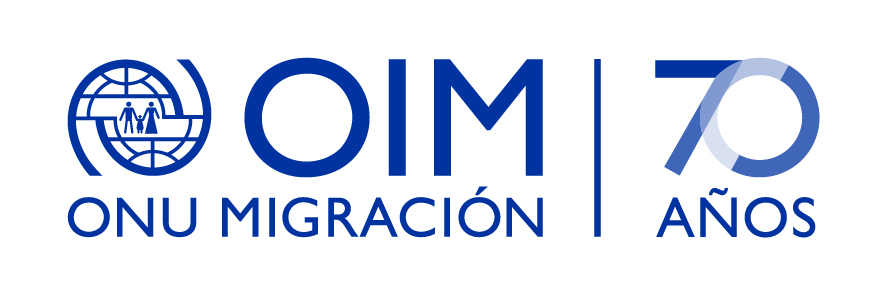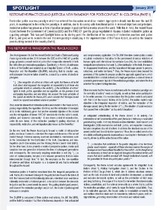| dc.coverage.spatial | Bogotá | spa |
| dc.creator | OIM | |
| dc.date.accessioned | 2019-02-06T15:30:57Z | |
| dc.date.available | 2019-02-06T15:30:57Z | |
| dc.date.created | 2019-01-31 | |
| dc.identifier.other | SP32 | |
| dc.identifier.uri | http://hdl.handle.net/20.500.11788/2145 | |
| dc.description | Restorative justice is a new paradigm which has entered the discussion on what our modern legal system should look like over the last 20 years, in counterpoint to the retributive paradigm. In addition, due to its overlap with transitional justice in terms of objectives and principles, restorative justice has grown as a form of positive language in post-conflict scenarios around the world. With this in mind, the recent Peace Accord between the Government of Colombia (GOC) and the FARC-EP guerrilla group negotiated in Havana included restorative justice as a guiding principle. This two-part Spotlight takes as its starting point the clarification of the concepts of restorative practices and justice (Part I), and goes on to examine the role this new paradigm could play in the implementation of the Peace Accord, as well as the broader peacebuilding context in the country (Part II). | spa |
| dc.description.abstract | Restorative justice is a new paradigm which has entered the discussion on what our modern legal system should look like over the last 20 years, in counterpoint to the retributive paradigm. In addition, due to its overlap with transitional justice in terms of objectives and principles, restorative justice has grown as a form of positive language in post-conflict scenarios around the world. With this in mind, the recent Peace Accord between the Government of Colombia (GOC) and the FARC-EP guerrilla group negotiated in Havana included restorative justice as a guiding principle. This two-part Spotlight takes as its starting point the clarification of the concepts of restorative practices and justice (Part I), and goes on to examine the role this new paradigm could play in the implementation of the Peace Accord, as well as the broader peacebuilding context in the country (Part II). | spa |
| dc.format.extent | 3 | |
| dc.format.medium | Digital | spa |
| dc.language | en | |
| dc.publisher | Organización Internacional para las Migraciones (OIM-Misión Colombia) | |
| dc.relation.ispartofseries | 32 | spa |
| dc.rights | EL AUTOR, manifiesta que la obra objeto de la presente autorización es original y la realizó sin violar o usurpar derechos de autor de terceros, por lo tanto la obra es de exclusiva autoría y tiene la titularidad de los derechos morales sobre la misma. PARAGRAFO: En caso de presentarse cualquier reclamación o acción por parte de un tercero en cuanto a los derechos de autor sobre la obra en cuestión, EL AUTOR, asumirá toda la responsabilidad, y saldrá en defensa de los derechos aquí autorizados; para todos los efectos la OIM actúa como un tercero de buena fe. EL AUTOR, autoriza a LA ORGANIZACIÓN INTERNACIONAL PARA LAS MIGRACIONES, para que utilice la obra objeto de la presente autorización. | |
| dc.source | reponame:Repositorio de Información de la Organización Internacional para las Migraciones OIM | spa |
| dc.source | instname:Organización Internacional para las Migraciones (OIM) | spa |
| dc.title | Spotlight - Restorative Justice and Practices_Part II January 2019 | spa |
| dc.type | info:eu-repo/semantics/report | spa |
| dc.type.spa | Reportes | spa |
| dc.subject.keyword | Peace Accord | spa |
| dc.subject.keyword | Restorative justice | spa |
| dc.subject.keyword | Transitional justice | spa |
| dc.subject.keyword | Reparations | spa |
| dc.subject.keyword | Non-repetition | spa |
| dc.type.hasversion | info:eu-repo/semantics/publishedVersion | |
| dc.coverage.country | Colombia | |
| dc.description.objetivo | Restorative justice is a new paradigm which has entered the discussion on what our modern legal system should look like over the last 20 years, in counterpoint to the retributive paradigm. In addition, due to its overlap with transitional justice in terms of objectives and principles, restorative justice has grown as a form of positive language in post-conflict scenarios around the world. With this in mind, the recent Peace Accord between the Government of Colombia (GOC) and the FARC-EP guerrilla group negotiated in Havana included restorative justice as a guiding principle. This two-part Spotlight takes as its starting point the clarification of the concepts of restorative practices and justice (Part I), and goes on to examine the role this new paradigm could play in the implementation of the Peace Accord, as well as the broader peacebuilding context in the country (Part II). | spa |
| dc.description.contenido | Restorative justice is a new paradigm which has entered the discussion on what our modern legal system should look like over the last 20 years, in counterpoint to the retributive paradigm. In addition, due to its overlap with transitional justice in terms of objectives and principles, restorative justice has grown as a form of positive language in post-conflict scenarios around the world. With this in mind, the recent Peace Accord between the Government of Colombia (GOC) and the FARC-EP guerrilla group negotiated in Havana included restorative justice as a guiding principle. This two-part Spotlight takes as its starting point the clarification of the concepts of restorative practices and justice (Part I), and goes on to examine the role this new paradigm could play in the implementation of the Peace Accord, as well as the broader peacebuilding context in the country (Part II). | spa |
| dc.rights.accesRights | info:eu-repo/semantics/openAccess | |
| dc.rights.acceso | Abierto (Texto Completo) | |

